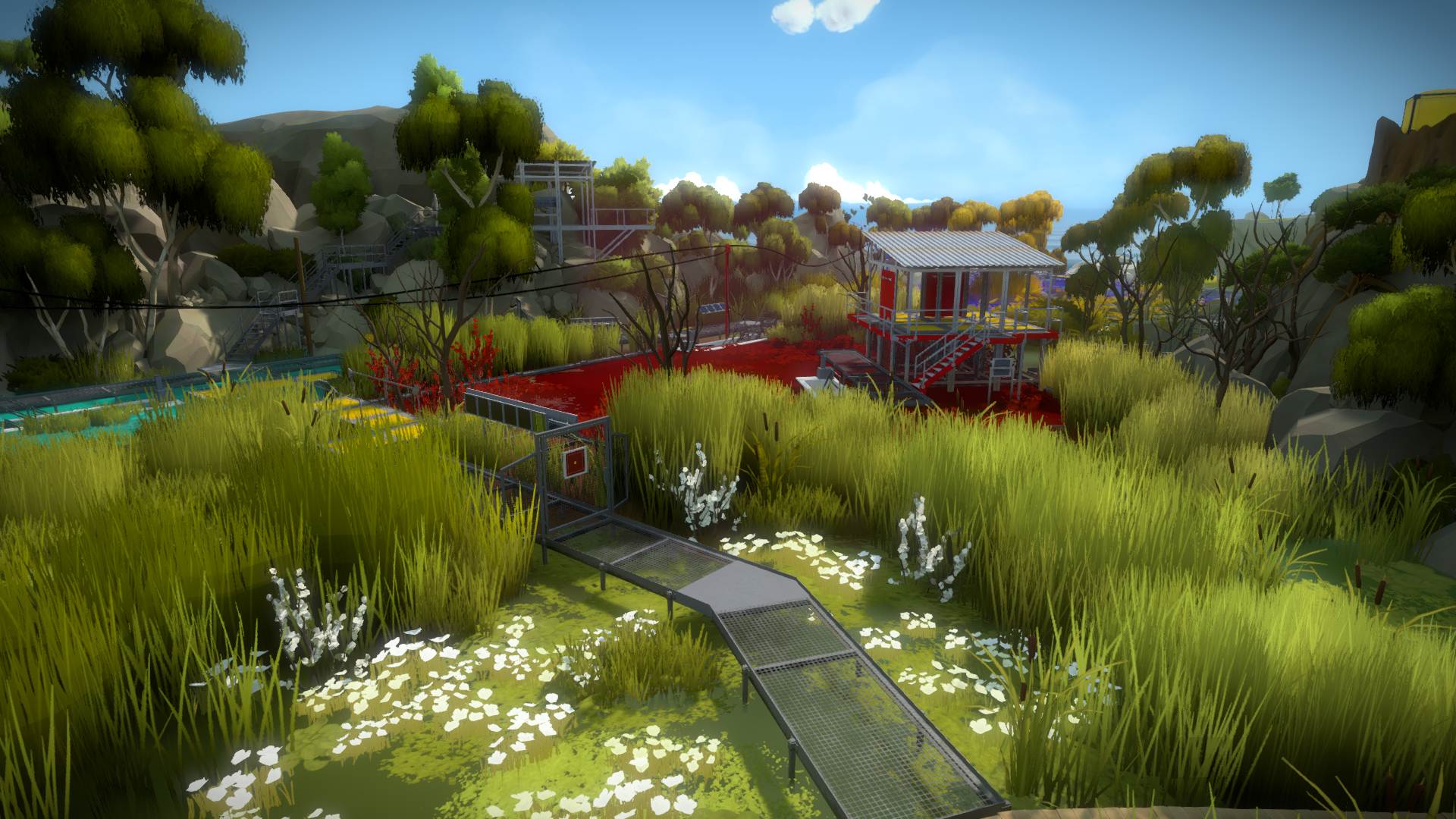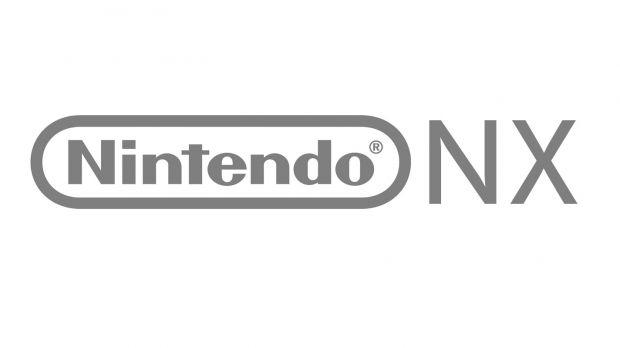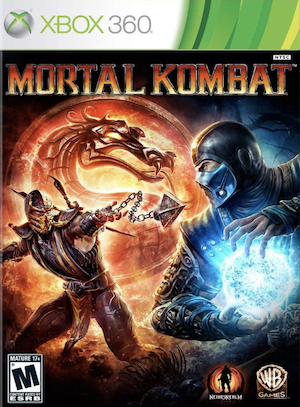
Andy Nealen is probably one of the men who would know the most about the future of games. He’s not a big AAA developer, and he is not working on the PS5 or Xbox Next. However, he is an academician (he is a researcher and professor at NYU), a game designer (he is most famous for his work on Osmos with Hemisphere Games), and a game enthusiast.
As an ‘indie’ developer, he also manages to have his pulse on the indie game community- which is arguably going to shape the future of this industry’s output. Nealen, then, is a man in the know about a lot of things. And last month, GamingBolt got to sit down with him and have an open, free flowing discussion about the state of gaming in general. We ended up talking about a lot of things- mobile gaming and indie games, yes, but the future of technology in gaming, VR, cloud computing, exclusives (or the lack thereof), the recent trend of buggy game launches, Nintendo and their future in the industry, and, amusingly enough, Fire Emblem. Sit back and enjoy the talk.
"In 2007, we thought that the main indie game wave had already passed us by."
Before we jump in, could you please introduce yourself for our readers?
Sure! I am Andy Nealen, I am assistant professor of computer science at the NYU School of Engineering. I am also… I guess formerly a core member of Hemisphere Games, the creators of Osmos, which was the iPad Game of the Year in 2010, and it won an Apple Design Award in 2011. It was a game that, back in the day – not so early days, but when indie games numbered in the hundreds, not thousands – we had a game in the channel. My two friends Eddy and Dave are still working on games now, but board games, not video games at the moment. They just had a successful Kickstarter, actually…
Anyway, I’ve been doing some game design. I’m a computer scientist by trade. I also study architecture and engineering. And I teach game design and computer graphics, and some artificial intelligence methods here at NYU.
Sounds awesome- you certainly know your stuff! I’m actually a bit nervous now.
(laughs)
What can you tell us about the work you’ve done with Hemisphere Games on Osmos?
Well, that was while I was still a PhD student, so it’s in the ancient past. (laughs)
Well, this was- so my friend Eddy Boxerman, who’s the lead designer, it’s his brainchild, Osmos was basically his baby. Him and I and Dave – him and Dave are still the two core members of Hemisphere Games – the three of us met in graduate school in Vancouver in 2001. We were all doing computer science. And we always said we would make a game in the future, and so- six years later, in…2006, or maybe it was 2007… Eddy sent me a prototype, and it was a game on which he’d been working for for two weeks, and it didn’t really have a name yet. And I think we called it Blobs. And it was a very, you know, it had very crude programmer type art, and it was very prototype-ey. Beautiful music, though, and it had most of the core mechanics. And I told him- he wanted to get feedback, right? He’d sent it out to all his friends. So I said to him, you have something very special here, but at the same time it also looked a lot like fl0w. At the same time, Jenova Chen had written his Master’s thesis on flow in games, for which of course he had made a flash version of fl0w, that looks not at all like the game we know from the PS3, but it looks something like it.
So we started to think about the idea of what we called ‘ambient game,’ right? So it was just something with beautiful music, no real stress, like a little bit different than what we were used to from AAA games. And so he worked on it for a little while longer, and at some point I told him, you know, obviously, because of how cool indie games are, we should be thinking of submitting this to a competition, like the Independent Games Festival, or something like that. So I told him, if you want to do that, I’ll help you with the game, ‘cause you only have six or seven weeks left till the deadline. And this was in 2007. So in 2007, he said sure, let’s do it. And I said cool, I’m just finishing my PhD thesis, I just submitted my documents, so I don’t have to work on those anymore. And then for 6-8 weeks, we just went into massive crunch mode, to make the prototype look as good as it could. And honestly? That was my main contribution to the game: crunching on it a few weeks, programming the menu, making the graphics look better, making the game feel a little bit better, giving it a little bit more character… not necessarily tweaking a lot of the level design, because that would come back and haunt us- when we did submit it to the IGF- we got zero nominations. And, you know, we had thought we had worked really hard on it.
Then I moved to New York, to be a professor, so I got a position at Rutgers, not NYU initially… and him and Dave worked on it, and tweaked the intro levels, right? They tweaked what would later become the two tutorial levels. Those two tutorial levels went through about 60-70 iterations, until we liked them. And then when we resubmitted it to the IGF in Fall 2008, we felt much more confident about it. Because it had undergone an entire year of polish and design. And then it got nominations. And that basically kicked off everything. And then later on we made an iOS version, and we actually had another friend we met in grad school make that one. That became the iPad version, and that’s the version that I think most people know better than the PC version. Because the first version that hit in the Fall of 2009 was on Steam. And then it was only in Spring 2010 that we put out the iOS version. And then the iOS version just went viral for a while. And then of course, Apple gave it the iPad Game of the Year award, basically for the first year of the iPad’s existence. Because of that, it went around the storefront for eight weeks around the holiday season. And so that visibility boosted sales, and everything.
And yeah, that’s pretty much it. My involvement beyond those eight weeks of crunching on the code was mostly being the mouthpiece- or a mouthpiece. Because I live in New York City, and it is very easy to get visibility in NYC, and not so easy where Dave and Eddy were living in Vancouver and Toronto. NYU at the time was already famous for starting its Talk Series, where a bunch of game designers would just get together and talk about design and stuff. So it was pretty easy for me to connect to that community in NYC, through having that game.
That sounds fascinating, mostly because if you think about it, this predates the so called indie game revolution. Indie games are a big thing today, but it’s really fascinating to know what it was like then, before all of this.
So here’s another interesting anecdote about that… so of course, we were in love with indie games, you know, we started working on them in 2006-07. But at the time- the first IGF where I considered indie games to be very different from AAA was in 2005 when Edmund McMillan and his colleagues won the grand prize for Gish. So Gish was like a game that felt intrinsically different from anything I had played before. So in 2007, we thought that the main wave had already passed us by! We thought we had missed the train on indie games! We were like, ‘oh no, we’re too late for this!’
And when we got into it, we started meeting all these amazing people- because the community was still very, very small, right? We had a bit of a diversity issue, it was mostly white dudes, but still, it was very overseeable, everyone knew everyone, and… it’s just exploded since then. To the point that people now talk about the ‘indiepocalypse’ and stuff like that now. It’s just the kind of thing that happens when there are more people around: it’s harder to get seen when you have more to look at.
In a lot of ways, what you say reminds me of the Great Crash of 1983- simply too much going around, making it harder for any one product to viable or profitable in the market.
I mean, I do this for a living! My job is to know about games and game design. And it is impossible for me to stay on top of this. I review games for the IGF, so I have access to a lot of resources, but there are not enough hours in the day to… (laughs)
It’s just impossible. When I was doing this in 2006-07, I started teaching game design in Berlin, when I was a PhD student in Germany, and I taught three classes there. Of course, my job was to know what was going on, but every week, there was one or two new indie game- which would take maybe an hour at most each. That’s still a thing you can do. But now, there’s like a hundred new games released a day! So now, the only thing that works for me personally is word of mouth. Weirdly enough, when Google Reader died, I stopped using RSS feeds, and I only use Twitter now to stay on top of things, to basically find things that are interesting.
So you rely on things going viral now.
I rely on things going viral to some extent. Which, honestly, is unfortunate. Because obviously, there’s smaller stuff that is super cool, and not getting attention, falling by the wayside.
Right, and it’s the stuff that actually needs the attention.
Exactly. And some of it is- of course there are a lot of ‘me too’ people that just go ‘this makes a lot of money, I want to do it too,’ and a lot of the games aren’t quite up to what I would consider the quality standards of the people who actually want to play, but there are a lot of very cool games getting lost in the cracks. There’s too much stuff- if someone does not accidentally see it, it could get lost.
Think of this- famously, Flappy Bird was already out for half a year before it went viral. There is a parallel universe to ours, where Flappy Bird never got recognition.
And it never got taken down.
You do know you can still play it, yeah? You can still download it as long as you downloaded it when it was first up.
Yup. Plus I’m pretty sure he put it back on.
Anyway, the point is, it’s hard to get visibility. And a lot of people complain about it a lot, but seriously, it’s the same thing in any form of entertainment. Anything that you can now do much more easy than you could 10-20 years ago, because the technology now enables it, it’s just hardtop get visibility, because everyone is trying it.
"Jonathan Blow is perfectly right, we should not undervalue our work."
A bit like what happens with YouTube.
Right. And then guess who’s popular on YouTube- PewDiePie, right? Not him and 50,000 other people. There is a person who at this point is the most famous YouTuber, and is essentially a celebrity now. So yeah, I think in general a lot of people who entered indie games after they became ‘a thing’ did it for the wrong reasons. I think – and this is a generalization, so it’s probably not entirely true – most of the people who were doing it before were doing it for the love of making games, and getting to know others who love making and playing games. And the fact that they also got some fame and money along the way was almost a side effect. It was never the main reason. I mean, there were people who wanted to make it a sustainable business. I was one of the people promoting that. I was happy that there was an alternative to people just graduating and going to a games company. It was cool that people could be more creatively invested in their game.
And there are still games made like that, right? Like Darkest Dungeon, it’s just such a good game-
And The Witness. I don’t know if you’ve played that-
I have played and finished that game. Well…’finish.’ Whatever finish means for it (laughs)
I really like that game. I basically think it is the epitome of what a puzzle game can be. And it is, of course, an indie game, made by a man who made the game to make the game, not to get the money.
Right. In fact, he spent copious amounts of money making that game! More than $10 million, I believe! But at this point, he put out a long blog post on what the game made in the first week, and I think it made $5 million back? So even if he doesn’t break even, he can still continue making games. Which I think for him is the main thing. And he spent what, 6 years making the game? That is a long time to spend making something…
It makes sense, though, it was just, what, two or three people who worked on it? And it’s not like it’s any lesser in scope than a AAA game.
Yeah, I think the price point for it was perfectly justified. It took me 28 hours to get to the ending I got to. Honestly, if that game had been just five hours long, and still been as amazing, I thing $40 would still have been fine.
There was this perception at some point that a game that is indie shouldn’t cost more than $10-$15. And then of course, we made that problem worse by making everything cheaper on the App Store, and then free to play. And I know free to play is contentious, but honestly, I think some people are doing it very well. I think Hearthstone does it very, very well. There are decks that you can make from just the base cards that have made it to Legendary rank. Just by their players being better at playing the game. And yes, you can get better cards by paying, but I mean, you need to take into account, this game is not free to make- there’s an entire team at Blizzard dedicated to making the game. It’s not small, and they’ve poured a lot of effort into making the game accessible. And most people can and will play it for free- some people will spend money on it, others will spend even more money on it. That’s a function of some people being better off financially than others.
But yeah, the whole race to the bottom thing for games basically being free on iOS, or that for Osmos, we basically had- there was no way we could have priced it at $10 on iOS. The PC version is $10, which I still think is a fair price- because our philosophy was always that we would love it for players to have played the game, and then have come away from it saying, ‘that was worth my time and money.’ And so obviously the higher you go with the price, the less likely it is to happen. So we wanted to make sure people would feel that the game was worth the time and money, so we priced it at $10, but you can’t sell a game on iOS for $10- the general wisdom is, the game should be $5 or less.
Osmos was $5 on iPad, and $3 on iPhone. We had two different versions. We had a long discussion about this internally, and I wanted to have a universal binary, as it is called, where you buy it once and you have it on all devices. And I thought $2.99 for the universal binary was fine, but in the end, we did two separate versions, and that went over very well. People had no complaints about that.
Like you said, if the quality is good, people won’t mind paying.
Yeah, and making a version for iPad was surprisingly hard. It’s not like you can port the PC code 1:1. The iPhone has a much smaller screen, so we couldn’t use the same menu structure, and we had to redesign large parts of the game… so it wasn’t zero work, we did do work to put it on both, so I guess it was fine that we charged people some money for it.
I mean, developers shouldn’t have to apologize for how much money they choose to price their product at.
And yet we always feel that way. It’s always like- and I mean, Jonathan Blow is perfectly right, we should not undervalue our work, and it was a very calculated move of him to price it at $40. And I think that price is perfectly okay, I even think that game would be fine at $60.
This was actually something Nintendo’s late President Satoru Iwata predicted a decade back- the race to the bottom, and the undervaluing of games.
Yeah, he was usually ahead of his time.
Okay, so one of the main topics I also wanted to discuss with you was technology- since that’s your field, and you’re really good at tech. I was hoping to get your insight on popular tech topics in the gaming industry, and see where you stand on them.
My stand, my position on the technology right now is that it kind of took a backseat for a while. I think we’re in exactly that phase right now where technology has become less important. I think what has become more important is, like, creative uses of tech. So not exactly like developing brand new technology, right, like in the 90s and 2000s, having a better renderer would get your game visible- like the fact that it looked better, or faster, or rendered more objects, and what not, going from like DOOM to Quake, and all those different steps that graphics took along the way – computer graphics as a research field in general moving forward, and not just games – that was a huge leap, and it was important. For example, I think when we all played Mario 64 for the first time, our eyes melted- seriously, that is one of the highlights of my life, starting up Mario 64. It was just such an amazing experience to have played that for the first time. But I think as we go further now, and have the existence of all these game engines, predominantly Unity – Unity is very popular, most of our students at NYU use Unity for game creation – the fact that the tech exists is just there. It’s like, now we have the hammer. What can we make with the hammer? Where are all the beautiful things that we can make with the tools that we have? And it’s really cool, because it frees up a lot of stuff that you previously had to worry about, and frees up that time to be able to use that technology, to be actually creative.
Of course, there’s still development of technology, it still happens, we still see renderers get developed, we still see stuff look cooler. We see stuff like The Witness, right, where Jonathan Blow and his team sat down, and wrote their own engine, just to have full creative control over the rendering- and it shows! It doesn’t feel like any other game made in Unity. It doesn’t feel like a game that was made with an off the shelf toolset. And that’s the drawback as well right? We’re in this phase where all these engines are popular, and we’re seeing tons of creative output from all of these developers, but we’re not really seeing technological innovation. It’s a homogenization and consolidation of technology, and it basically is what directly led to something like the IGF axing the tech category. There used to be an excellence in technology award there- and at some point, the last year that we did it, we had a hard time finding five games to nominate! So the tech award went away, and we got the excellence in narrative award which makes more sense. The excellence in narrative jury had a hard time picking only five nominees, because there were so many amazing contributions in that field.
In my opinion, though, this is just temporary. Right now, it is cool to do all this technology, or all this design and this creative use of the stuff we have, but sooner or later, people are gonna get bored of it. Like they got bored of 2D games, then they wanted 3D, and I guess now VR.
"VR is definitely here to stay."
Okay, let’s talk about that. VR.
The next innovation is potentially going to be VR, right? We don’t know, it’s hard to say, like, some things look amazing- I don’t know if you are familiar with Sarah and Colin’s Fantastic Contraption– they have a game, that they’re actually streaming every now and then, and they’ve come up with a method, using a green screen, to actually render VR space in video- so that the people looking at the video are actually seeing… they’re like, external to the person playing the game, but they’re seeing all the 3D objects in the game that the person playing is seeing. So they found a way that’s not just like the 2D screen shows, like the renderer for Oculus Rift or something like that- they’re showing them something like the person is in.
And honestly, I think things like that are the most interesting and innovative uses of tech right now. I don’t know, like, I would at this point not sign anything that says VR is going to be the next big thing, because honestly, I don’t know. I will sign off on saying that VR is going to be the next big thing in architectural design (laughs); which has very little to do with video games. But VR is definitely here to stay, because architects are gonna gobble that up, they’re gonna use that for sure.
I’ve always said that VR might or might not take off in video games, but it has a whole lot of other potential uses.
You are 100% correct about that. It may not be big in games, but at least things like Fantastic Contraption are a step in that direction where someone who is a good designer is taking technology, taking it seriously, and figuring out how to make it work, doing it in creative ways. And they’re making it so so they can actually share their results with the world outside of them, that’s not in VR. Because that’s the hard part, right? I mean, a 2D video game, or even a 3D video game, you can make a video of it and share it on YouTube! You can’t really do that with VR. It’s not the same. You have to experience it to see it.
It’s a lot like the problem Nintendo had with the 3DS.
Yep. But that’s a really good example of the technology. But I think the big thing with technology right now is AI. Like, maybe in March we’re gonna have a ‘big blue’ moment where the current Go champion might lose to an AI [Ed: this interview took place in February. In March, earlier this week, Google’s A.I. did indeed win a game against the current human champion]. It’s exciting to see how far we can push the boundaries of what these systems are capable of doing.
It’s fascinating. Like programming improvisation.
Yep. But yeah, I think technology is still definitely a thing. It’s not on the forefront right now, but I think it’s just a matter of time till it comes back, and I think VR is gonna start that move back towards technology to some extent.
How about cloud computing? Do you think it may actually have potential, especially for gaming?
I think it has potential… I think the technology is not quite there yet. I think we’ve seen that multiple times, right, like, Shinra just closed their doors- all these places that tried to do cloud computer gaming, like where stuff runs on servers, basically the thin client model, where you only have the client that doesn’t even have to do computation? I think that stuff is gonna come. But right now, I would almost say that that stuff is our current 90s version of virtual reality- like we had VR in the 90s, but it was garbage! It was research, it was chuggy, clunky, jangy, and no one gave it the time of the day, and so it died off again. And I think that’s what happening with cloud gaming right now. I think cloud gaming is definitely going to be an interesting thing in the future, for all the reasons that people say it will be interesting- you don’t have to worry about netcode, you don’t have to worry about having a big beefy computer at home, you can actually do a bunch of pre computation offline, that just gets streamed to the client as video- and so you could precompute entire games! There’s a paper from two years ago that’s called ‘Self Refining Games,’- and there’s a game that refines itself by looking at player analytics! And again, it’s just a research prototype. It’s a fluid simulator, that’s not actually running that fluid simulation, it’s just sending a computed video to the client. It’s self learning, it’s super cool, it’s a really strong concept. I don’t think there’s enough demand for something like it yet-
Maybe in something like an MMO, like they could change a raid dynamically in response to how players tackle it.
Yeah, well, I mean, that’s how Blizzard does things- if you could do this whole offline rendering stuff in the cloud, and then stream video, I think there’s a possibility for something like that taking off, but I don’t think we’re quite there yet. I’m not sure, but I think that we’re almost there, but we’re like 95% there. We’ll see, though.
Plus there is the bottleneck of the internet speeds and the infrastructure.
Yeah! And as it turns out, doing offline rendering is really expensive- there’s a reason that Pixar films cost a lot of money to make. Because making and designing them is hard as it is, but they also have to render all the stuff they make. And they have specialized computers, huge render farms that use up a lot of energy, and cost a lot of money.
Okay! So… are you familiar with the current generation consoles, their tech, their hardware?
Not really. I haven’t, to be honest, I haven’t been following that a lot. Like I’m not- I’m probably not the right person to talk about that. I mean, I have a PS4 and Xbox One – I think my Xbox One hasn’t been used in six months. The PS4 I use, because I play Spelunky daily, every day. It’s my religion (laughs)
But yeah, I don’t know that much about- I’ve been playing most of my games on PC for the last 2-3 years.
Fair enough. So let’s talk about other things. For instance, there is this recent report that mobile tech, graphical and rendering tech, will catch up to console tech by 2017. Which is not even a year away. And I’ll be honest, while I’m surprised at how much mobile tech has advanced since 2007, which was when we first got the iPhone-
Yeah, it’s pretty amazing.
– but I don’t personally see this happening. Do you think it could?
I think the platform is destined for a different kind of game- like I don’t think, if we’re talking touch enabled devices, which, that’s what phones are – they went from being keypad devices to being touch enabled, and I don’t think we’re going back to keys, and I think touchscreens are here to stay. And if anyone has seen a child with an iPad, they know the reason why- they just gravitate towards them so naturally, because it’s so tactile, and they just understand how to use it immediately.
But the thing these touch screen devices can’t do is, they can’t replace a controller. There’s just no universe where anyone will ever play something like Street Fighter on an iPad (laughs). That’s just not gonna happen. Now in terms of rendering capability, I have to say it blows my mind how high performance the current generation tablets are. It’s just absolutely mind boggling when I look at any of these demos we see from Epic or NVidia or Apple, that just showing off what Unreal looks like on a tablet. I look at that, and I’m like, ‘this is insane!’ If you’d told me this is what mobile games would look like when I was a teenager, I’d have told you you’re a big fat liar. So in terms of rendering, I think it’s possible that mobile devices catch up. Obviously, it always depends on- I mean, the reason consoles aren’t as high end and high performance at rendering as PCs is because there’s a money, a financial constraint. They need to be marketable to a large group of people, so obviously, they’re never gonna cost- I mean, there are graphics cards that cost more than consoles! So, that will always exist, and because of that, graphics will always be better on high end PCs.
Well, I mean, that, and the fact that unlike PCs, consoles have static hardware.
For developers, it’s absolutely glorious that they can design for a piece of hardware, and that hardware is the same everywhere. Because, even developing for iOS for example, you have different iOS versions, different sizes of iPhones and iPads, and you have to make sure your stuff works for all of them. Now mind you, this is still not as bad as development can be for PC- or for Android! Don’t even get me started on Android. Android is just a nightmare. Android is just the worse. It is just so hard to make it work. The only reason there is an Android version of Osmos is because we outsourced it to a company. And we’re very happy we did, because obviously it’s been a good success on Android, but we didn’t do it ourselves, because that’s the lowest level of graphics programming that I have ever seen in my life! Where a graphics engineer has to test all these devices, all different graphics drivers, and it’s the most Sisyphean task I’ve seen. There are different graphics drivers! And each driver has its own bugs!
So like PC gaming before DirectX became a thing.
Pretty much. Even then, I think sometimes Android is even worse than that. And you’d think that PC gaming has become better, but it’s still so hard. Because everyone has different graphics cards, every graphics card works different with a driver, the driver has different problems, which mean they don’t utilize every feature provided by DirectX or OpenGL- it’s hard. It’s hard to make it work everywhere, and consoles are great for getting away from all that. And I think that’s one of the big reasons that consoles will always exist. Because they are affordable ,and attractive to consumers and developers. And I think mobile devices will always exist for gaming too- we have them anyway. We call them telephones, but I don’t know a lot of people who actually use their phone as a phone! It’s a high powered super impressive pocket computer. And that, and the fact that we have them anyway, makes them attractive too.
But do I think mobiles will ever catch up to consoles? I don’t think they have to. Because they have their own unique flavor, and anyone who is a good game designer understands that, and designs games with that in mind.
"Every developer wants to ship an amazingly polished, clean game- they want to be proud of it, they don’t want it to be garbage, they don’t want the servers to crash on day one, they don’t want any of this to happen."
Okay, so it’s fascinating you bring up ease of console development, because we are getting more buggy games, and buggier games, than ever before- and this is in spite of us having the most powerful, easiest to develop for game consoles than ever. Why do you think that is?
Well, there’s a lot of reasons why that happens, right? And most of that has to do with project management- project management, budgetary constraints, all kinds of stuff like that. Also, to be honest, the games are just getting much bigger. The content creation for the games, and the play testing for the games of this scope and scale, is becoming very, very difficult, and I think it’s one of the big problems that the games industry faces, which is, the more we push graphics technology, and the more we push the size and scale of these games, the more we realize that the current model of creating games doesn’t exactly scale very well. Like, if you have double the assets, and double the rendering capacity, you can’t just put double the people on it and hope that solves the problem. That’s not how it works, it doesn’t scale that way. Because with increasing the size of the team, there comes a huge overhead where project management just gets exponentially harder- and I don’t know how that’s gonna be solved.
I think we’re running into a phase where, it’s not even bad intention on the developer’s side. It’s not like they’re doing this on purpose! Obviously, every developer wants to ship an amazingly polished, clean game- they want to be proud of it, they don’t want it to be garbage, they don’t want the servers to crash on day one, they don’t want any of this to happen. It’s just that some people are obviously more careful about this. I mean, you brought Blizzard up earlier, right? And Blizzard, instead of making a franchise, simply make a game, and then they cater to that game, and so Blizzard is almost more of a platform developer. Every game they have is a platform that they support for years and years, instead of putting a new one out every year. It’s a lot like Nintendo- these companies make platforms, while others make franchises.
Your probably prone, in my opinion, to see bugs crop up in franchise development, where a new one needs to be out every year- and I think recently I heard that the latest Assassin’s Creed was actually a financial flop, even though the game I think was critically, it was considered to be one of the better games of the series.
Yeah, it was definitely viewed as an improvement over Unity, but because of how badly Unity poisoned the well…
Yeah, I mean it totally poisoned the well, and now Ubisoft is like, I think, considering taking a year off.
Yeah, they are- there’s gonna be a new one in 2018, but none this year.
Yeah, I think, you know what, seriously, this makes sense. I think the reason we are seeing so many bugs creep in is because these games are often not properly tested- it’s because people are trying to churn these games out at breakneck pace, at the cost of the morale of their teams, and the game’s quality, and it’s not healthy. I don’t think it’s a healthy attitude. It’s not like other industries don’t suffer from the same problems- games are just going through the same growing pains that other industries before games also had. And we’ll figure it out! I’m very optimistic about that. It sucks when the game comes out with bugs, because usually it’s very hard to save the game after that. And that’s bad for the company, clearly, because they might take a financial hit, but it’s even worse for the people who made the game- right, because they see their creation that they made out there, and now it’s not getting the proper love that it should get, because they managed to screw up the launch.
There are ways, I think, in which the future of games, and games engineering and research can solve that- I mean software engineering has unit testing, right? Most other fields of software engineering understand that if you don’t have automated testing for software, you’re very likely to end up delivering to the client a very buggy bit of code. So I think games hasn’t fully figured out what that means yet… and I think it’s also because games are much more complicated, fully dynamic things, whereas most other software has much less scope than games. But I still think games can use the principles of automated testing and automated playtesting.
So I think it’s gonna get better- but something is going to have to give. Maybe making these gigantic AAA blockbuster titles is not a good business model- and I think we’re beginning to see, we’ve seen less of them come out in the last two or three years, because you can’t sell fifty blockbusters a year. No one’s gonna buy 50 games a year! Your normal person who loves games, but has a job and a family is not going to spend that much amount on games each year!
I guess this is sort of related- why do you think exclusive games are becoming less common on consoles?
I think it’s mostly because people want to make money. Again, when we had fewer releases, it was totally viable for a platform holder to offer exclusive deals to developers. A developer knew that if they are exclusive to a console, and that console developer gives them a leg up, or funding, or marketing and advertisement, and that sort of stuff, then it’s gonna be beneficial for them. But these days I think at the end of the day, if your product or your game only launches on a single platform, and that platform is not mobile, then you’re going to have a tough time recouping your investment. And I think that’s the main reason that people are not seeing as many platform exclusives.
I mean, that said, Street Fighter V is console PS4 exclusive, right? So it’s not like we don’t have them. The games industry comes up with the wildest terms, though, right? I mean ‘console’ exclusives. So funny! I still remember back in the day when Rockstar announced that they got like a billion dollars from Microsoft to make the GTA4 episodes Xbox 360 exclusives- I don’t think they can pull that off anymore. And those things were timed exclusive anyway!
Unless you are a first or second party developer, those things are usually timed exclusive.
"It would sadden me greatly to see Nintendo move out of the hardware business."
Okay, so one last question.
Okay.
Do you think Nintendo has a future in the market, as a hardware developer?
Nintendo is the most out of the left field game developer company that I know of. It’s- predicting them is like predicting the stock market! It’s like, if I say anything about Nintendo right now, it’s probably going to be wrong. I mean yeah, every now and then they’ll make a piece of hardware that’s goofy and doesn’t succeed… and then they’ll come out with a new piece of hardware that just prints money. So I think Nintendo is here to stay even as a hardware developer. That’s what my gut feeling says. They must have a war chest that’s the size of a small country. Because they made so much money off of the 3DS- 3DS has printed so much money, right? There’s that funny viral GIF that goes ‘It prints money,’ right? So yeah, they spend a fortune on development- and every now and then, they put out hardware that doesn’t sell close to what they need for it to have been worth their time. But then they put out something that’s so successful, that they probably have enough money to do another 20 years of research and development.
And because of all the designs that they do being so intricately tied to their hardware, I really doubt that Nintendo is- I mean, I don’t know, because I have no insider information whatsoever, but I can’t see… it would sadden me greatly to see Nintendo move out of the hardware business. I mean, the New 3DS XL, with the eye tracking, that has stable 3D, is amazing. I love that so much- I can actually play Super Smash Bros. on my 3DS, with the 3D turned on, and it works! No flickering, no headaches. I am so in love with it. And- yeah, it’s magical.
It’s their best handheld hardware ever, in my opinion.
I absolutely agree. And my concluding thought for the day is- I did not know there is a new Fire Emblem game out until this morning.
Oh yeah, it just came out.
It just came out! Fire Emblem is one of my favorite franchises of all time, and until this morning, I didn’t know there was a new one. So I am so excited right now, I’m gonna go home and download it on to my 3DS. But I don’t know which version! I hear there are two versions! I am so confused-
Well, if you like classic Fire Emblem, get Conquest. If you liked Awakening, get Birthright.
I think I like classic more. I definitely like the challenge. So I need Conquest then. But then what about the DLC?
That’s the ‘true ending.’ So basically you get two sides of the story, and then you get the resolution in the DLC.
But yeah, that’s how little I am staying on top of these things. But now it’s like Christmas for me. I am going to remember today as Christmas, the day I got to go home and play a new Fire Emblem that I didn’t even know existed!
Honestly, this Q1 2016 may be one of the best Q1s we’ve had ever- XCOM 2, Darkest Dungeon, Firewatch, The Witness, Fire Emblem… I don’t even know where to… it’s crazy! It’s a very exciting time for people who like to play and make games. And research games. There’s officially too many games to keep track of and play. But that is an okay problem to have.
It’s an embarrassment of riches. That is a good embarrassment.
Exactly. It’s a good embarrassment.
Anyway, it was a pleasure talking to you. Thank you so much!
Thank you!





















Share Your Thoughts Below (Always follow our comments policy!)